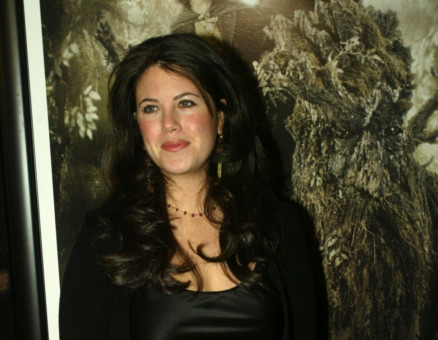
Last week marked the 20th anniversary of what was once known as the Monica Lewinsky scandal but is now, rightly, referred to as the Bill Clinton scandal — and my goodness, in today’s new post-Weinstein light, Lewinsky’s story looks almost unrecognisable. There was a time when it seemed she would for ever be known for a [sexual act] she gave her boss when she was 22. Trapped on her knees in history’s amber, Lewinsky’s legacy was decided not by the politicians and so-called friends who so eagerly betrayed her, but the media, and especially, it pains me to say, by female writers. Novelist Erica Jong expressed concern about all the “attacks” the president suffered from “the young women in the office. And particularly the ones who are a bit father-obsessed... and feel neglected.” New York Times columnist Maureen Dowd , who won a Pulitzer for her coverage, described Lewinsky as “a ditzy, predatory White House intern who might have lied under oath for a job at Revlon”.
Twenty years seems to be the amount of time it takes for the world to take a breath and re-evaluate a demonised woman . Now 44, Lewinsky has built a reputation for herself as an anti-bullying advocate, and many of her earlier critics have apologised. The 90s was dominated by women who became tabloid punchlines, and many are now benefiting from long overdue reassessments. Marcia Clark, the lead prosecutor in the 1995 OJ Simpson trial, and for so long a byword for bad hair, was finally refashioned as the moral centre of Ryan Murphy’s 2016 miniseries The People Vs OJ Simpson . Murphy showed us a Clark who was the victim of a misogynistic public mood, which mocked her divorce and her perm, instead of listening to her righteous arguments — just as it allowed Simpson’s celebrity to obscure his long history of domestic abuse. (Murphy is now planning a miniseries about Lewinsky and Clinton .)
Famously, Anita Hill’s 1991 televised testimonies that Clarence Thomas had sexually harassed her, in the face of his denials, led to her being described by one journalist as “nutty and a bit slutty”. Hill’s testimony did not stop Thomas from becoming a supreme court judge but — proving that history has a sense of humour, only with a very long lead time — Hill was recently announced as the head of a commission on sexual harassment in the workplace, organised by women in film.
Finally, I, Tonya , the forthcoming and excellent film about the disgraced ice skater Tonya Harding, emphasises that, although Harding will for ever be remembered as the woman who kneecapped her rival, Nancy Kerrigan (even though she didn’t), she was very much a victim in the whole story. After a viciously abusive childhood, followed by an even more abusive relationship, she entered a world that refused to see her as anything more than white trash. Harding has always insisted she never knew about her ex’s plan to arrange the assault on Kerrigan, though she did cover up for him afterwards; given his history of beating her, this is not exactly surprising.
So times change, but they also don’t. The Clinton anniversary coincided with the publication in Le Monde of a letter , signed by 100 women, including Catherine Deneuve, about the increased awareness of sexual harassment by powerful men. The signatories fretted about the real “victims”: “men who’ve been disciplined in the workplace when their only crime was to touch a woman’s knee, try to steal a kiss, talk about intimate things during a work meal, or send sexually-charged messages to women who did not return their interest”.
No matter how many lessons we learn from the past, there will always be people willing to go to the mat to defend the rights of powerful men to exploit female subordinates. They claim that a hand brushing a knee is now “under the same umbrella” as rape, wilfully ignoring the fact that the umbrella here isn’t sex but power and the imbalances thereof. This is what was consistently overlooked every time Lewinsky was described as “predatory”; this is what still gets overlooked, every time someone writes that modern feminism is “returning to a victimology paradigm”, as American literary critic Daphne Merkin claimed recently .
Lewinsky, Hill and Harding in particular are stories of punching down: women who were exploited — first by men, then by the global media — and who had no recourse to reply. This is not “victimology”, but an acknowledgment that the power dynamics are not always equal. It’s great that this is at last being recognised; but it is telling that we had to wait until they were no longer part of public life.
After all, there was one woman who was demonised in the 1990s and still is, because she has yet to retreat into the shadows. But don’t worry, Hillary Clinton: when you’re 90, the world might finally forgive you, too.
— Guardian News & Media Ltd
Hadley Freeman is a Guardian columnist and features writer








